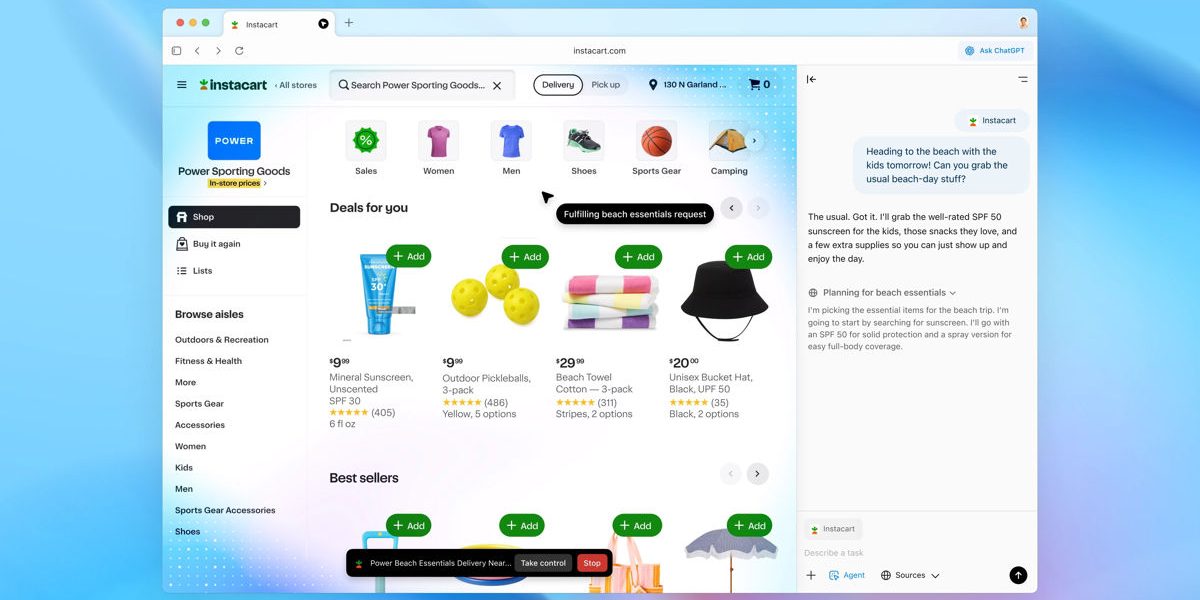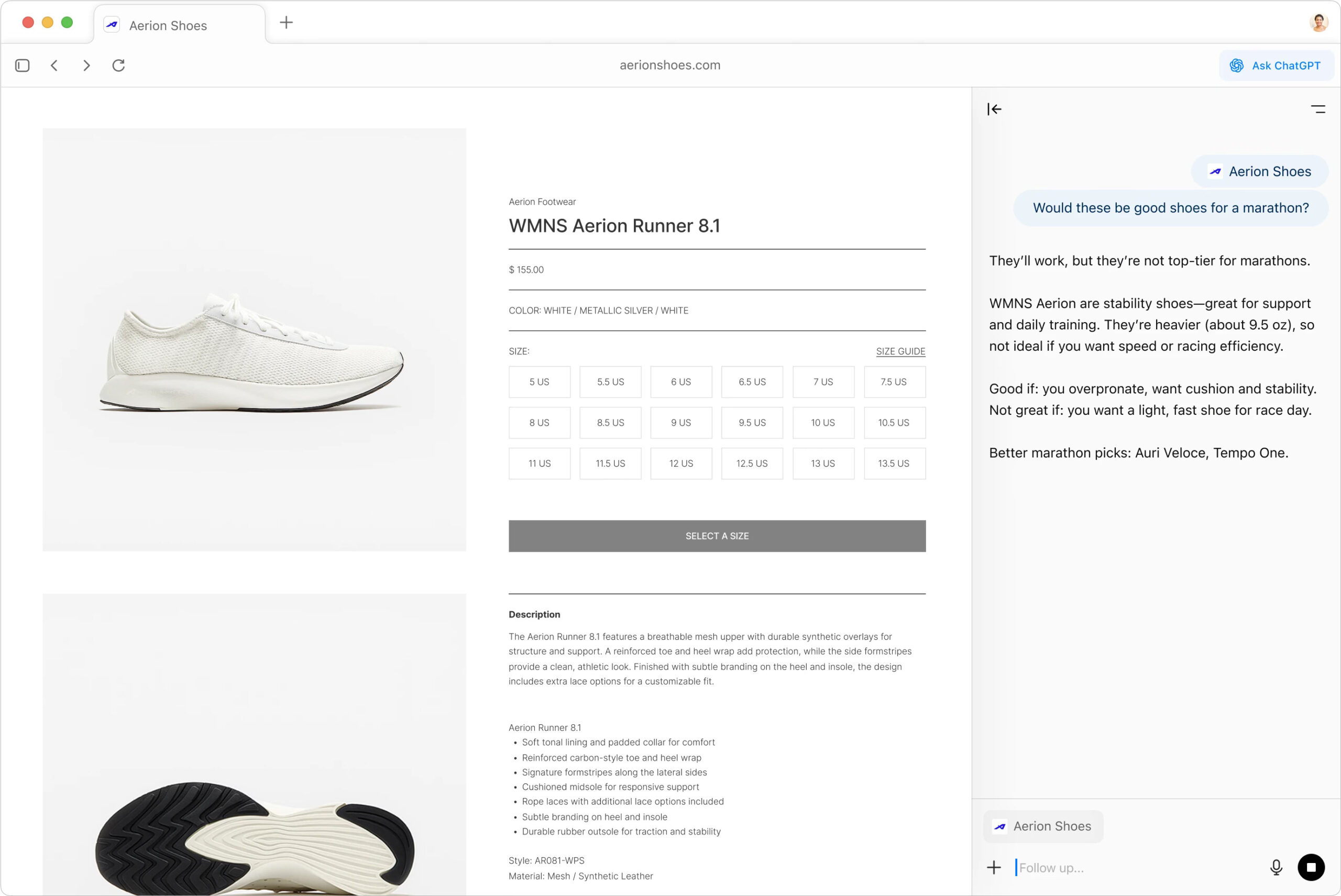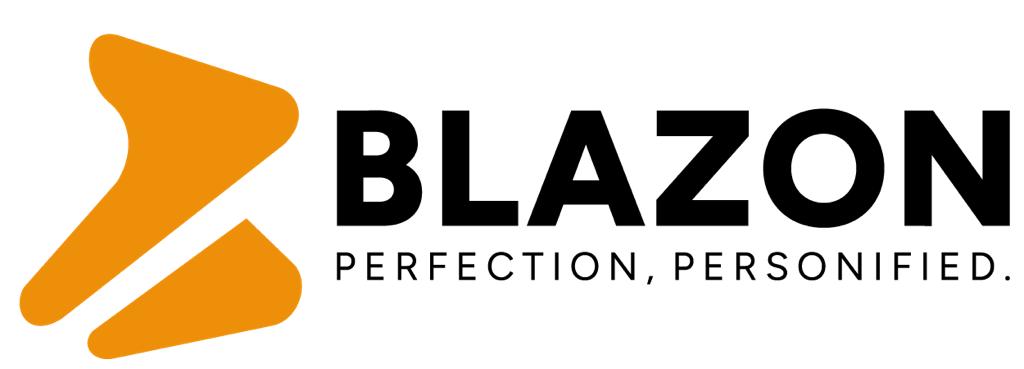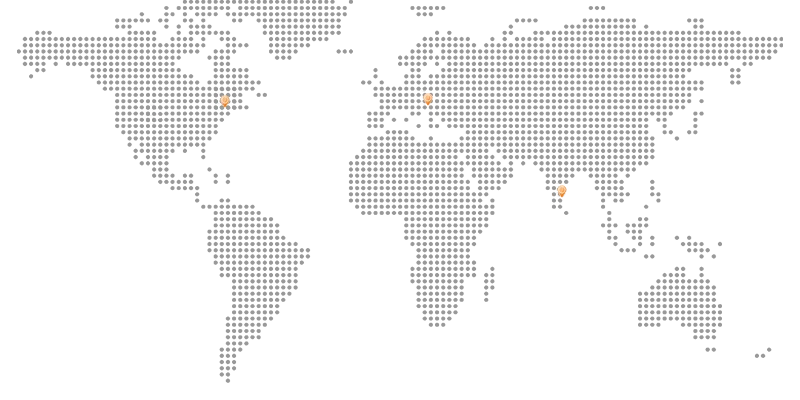On October 21, 2025, OpenAI made a bold move in the tech world with the launch of ChatGPT Atlas, an AI-powered browser that is ready to shake up the browsing experience. For years, Google Chrome has been the dominant force in the web browsing market, but with the launch of Atlas, OpenAI is looking to challenge that reign. So, what makes this new browser different, and could it be time to say goodbye to Chrome?
A New Kind of Browser
ChatGPT Atlas is not just another browser. It’s a whole new way to interact with the internet, thanks to its deep integration with OpenAI’s own chatbot, ChatGPT. Instead of simply being a tool for viewing websites, Atlas turns your browsing experience into something more intelligent and interactive. With Atlas, you don’t just browse the web – you can have conversations with it.
 (Image Source: ChatGPT)
(Image Source: ChatGPT)
Imagine reading an article and being able to ask the browser to summarize key points, translate a section, or even generate ideas based on the content you’re viewing. This is what ChatGPT Atlas offers, allowing users to interact with the web in a way that feels more like a conversation than traditional browsing. It’s an AI-powered assistant built right into the browser, ready to help with research, content creation, or even answering questions about the web page you’re on.
The Power of AI
While most browsers focus on speed, reliability, and security, ChatGPT Atlas brings something extra to the table: Artificial Intelligence. Powered by ChatGPT, Atlas gives users access to a smart assistant that can help guide their browsing, suggest relevant content, and even perform tasks for them. Whether you need help finding information, comparing products, or planning a trip, Atlas is designed to make the process faster and more intuitive.
 (Image Source: ChatGPT)
(Image Source: ChatGPT)
One of the standout features of ChatGPT Atlas is its “Agent Mode.” This mode, available to Pro and Business subscribers, allows ChatGPT to perform more complex tasks, such as researching a topic, drafting a blog post, or even making purchases on your behalf. It’s like having a personal assistant built right into your browser, taking care of the heavy lifting so you can focus on what really matters.
Privacy, Control, and Personalization
Privacy is a major concern for many internet users today, especially with the amount of personal data being tracked and collected by tech companies. OpenAI understands this concern, which is why ChatGPT Atlas comes with robust privacy features that give users control over their data. With Atlas, you can choose whether or not you want to allow the AI to remember your preferences and browsing history. This opt-in memory feature means that ChatGPT can provide personalized recommendations and a more tailored experience, without forcing you to give up control over your data.
As privacy concerns continue to rise, this level of transparency and control could be a significant factor in persuading users to give ChatGPT Atlas a try. OpenAI is making it clear that it values user trust, and it’s committed to ensuring that your data stays in your hands.
A Real Challenge to Google Chrome
So, what does this all mean for Google Chrome? While Chrome has maintained its dominance for years thanks to its speed, vast extension library, and integration with Google services, it hasn’t incorporated AI into the browsing experience in the way that ChatGPT Atlas has. OpenAI’s new browser offers a smarter, more personalized alternative that could appeal to users who want more than just a tool for navigating the web.
For years, Chrome has had little competition, but the launch of ChatGPT Atlas marks the beginning of a new era. It’s not just about browsing the web anymore, it’s about interacting with it, learning from it, and having an assistant at your side to make the entire experience smoother and more productive. Whether or not Atlas will replace Chrome in the hearts of users remains to be seen, but it’s clear that OpenAI is serious about carving out a place for itself in the browser market.
Looking Ahead
At the moment, ChatGPT Atlas is available for macOS users, but OpenAI plans to expand its reach to Windows, iOS, and Android in the near future. As more people try out this AI-powered browsing experience, it’s likely that the browser wars will heat up. While Chrome is still the go-to for many, Atlas’ innovative features and AI-powered functionality make it a serious contender in the long run.
The future of browsing is shifting, and OpenAI is pushing the envelope in ways that could make traditional browsers feel outdated. With its AI-powered features, privacy controls, and seamless integration with the web, ChatGPT Atlas might just be the future of internet browsing – one that makes browsing not just smarter, but also more intuitive and personalized.
Conclusion
So, is it time to say goodbye to Chrome? Maybe not just yet. But with the launch of ChatGPT Atlas, OpenAI has certainly made a compelling case for exploring new ways to browse the internet. As AI continues to evolve and improve, the browsing experience of tomorrow could look very different from what we’re used to today. Whether or not Atlas will take over the browsing market remains to be seen, but one thing’s for sure: the browser game just got a lot more interesting.


